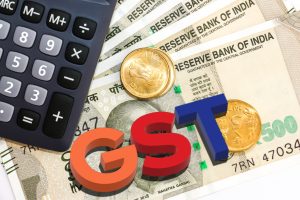 The Parliamentary Standing Committee on Finance has recommended that GST on health insurance, particularly for senior citizens, should be lowered. It has simultaneously pitched for a level-playing field between public and private sector insurance companies in terms of TDS on GST and participation in government-run insurance schemes.
The Parliamentary Standing Committee on Finance has recommended that GST on health insurance, particularly for senior citizens, should be lowered. It has simultaneously pitched for a level-playing field between public and private sector insurance companies in terms of TDS on GST and participation in government-run insurance schemes.
Financial services, including premium for health insurance, term insurance plans and unit-linked insurance plans, would attract GST at 18 per cent. On endowment plans, GST is applied differently. While it is 4.5 per cent for premium paid during the first year, 2.25 per cent would be the rate from the second year onwards. For life insurance, in the form of single-premium annuity policies, rate of GST is 1.8 per cent. Rates are the same for all age groups. These can be reviewed on the recommendation of GST Council.
The Standing Committee, chaired by BJP MP Jayant Sinha, underlined that there is a need to rationalise the GST rate on insurance products, especially health and term insurance, which is 18 per cent at present. The high rate of GST results in a high premium burden which acts as a deterrent to getting insurance policies, the Committee said. With a view to making insurance more affordable, the committee said: ”GST rates applicable to health insurance products, particularly retail policies for senior citizens and micro-insurance policies (up to limits prescribed under PMJAY or Pradhan Mantri Jan Aarogya Yojana, presently ₹5 lakh) and term polices may be reduced.”
The committee also took note of TDS (Tax Deducted at Sources) on GST that applies only to public sector insurance companies. According to CGST ACT, TDS at the rate of 2 per cent is required to be deducted from the payment made or credited to the supplier of taxable goods or services or both, where the total value of such supply exceeds ₹2.50 lakh. This is applicable to entities mentioned in Section 51 of CGST Act and includes public sector undertaking insurers. “The said requirement for TDS is not applicable on private insurer as the same is not notified under the said section,” Financial Services Department told the Committee, adding that it has requested the Revenue Department to examine the matter and take necessary action.
Apart from this, the Committee also noted that the PSU insurance companies have to mandatorily participate in government-run insurance schemes that impact their profitability. “The committee, with a view to ensuring a level-playing field, recommends that such provisions be uniformly applied to all players,” it said.
Relying on data from Motor Annual Report of the Insurance Information Bureau of India (IIB), the Committee observed that nearly 56 per cent vehicles (mainly commercial) plying on the roads are unsecured. Such a trend poses a risk to the owners and third parties in case of accidents or damages. Accordingly, the committee recommended implementation of e-Challan enforcement across states by leveraging data integration by IIN, mParivahan and National Information Centre data. It also suggested that financial institutions consider providing loans when they have proof of insurance coverage.
Source: The Hindu Business Line


